Park Rules
Park rules - to obey or not to obey, that is the question
Humans instinctively rebel against authority and being told what to do yet the rules are there for your protection as well as that of the animals and the environment.
When entering African National Parks visitors are given a flyer containing the rules of the park - I think many people simply toss this into the back of their vehicle and don't give it another look - big mistake!
Here are some of the key park rules you should be aware of for Your own good...
• Visitors must remain in their vehicles unless in a designated area.
If visitors get out their vehicle this could be the end result...
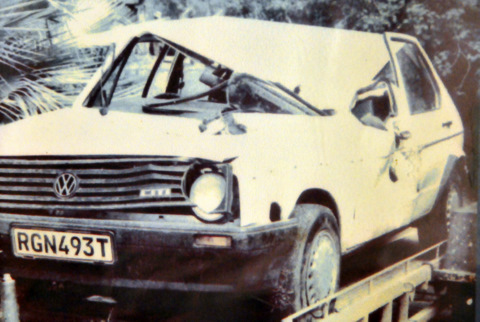
Here is the full article that is on display at the elephant hall in Letaba camp...
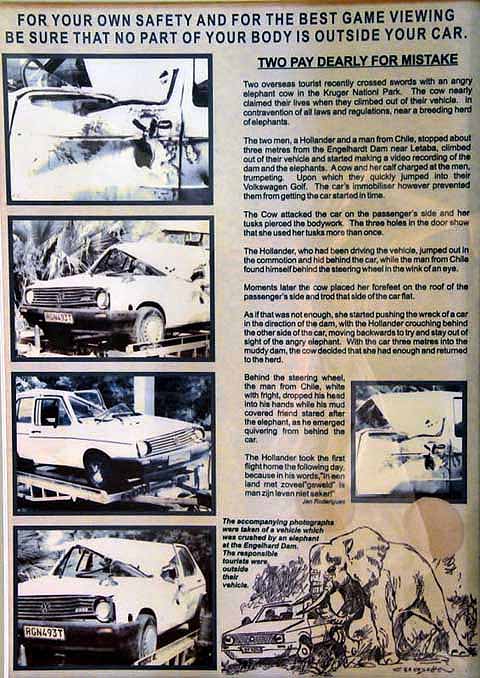
People seem to think that parks like the Kruger, Kgalagadi, Etosha and Pilanesberg are zoos or circuses where the animals are tame. The animals are wild and can be
dangerous!
• Remember that no part of the body may protrude from a window or sunroof or any other part of the vehicle. Vehicle doors should be closed at all times.
• Stick to the speed limit! All general rules of the road apply within the Kruger National Park. The speed limit is 50 km/h on tar roads and 40 km/h on gravel roads. Please note that not all roads are accessible to caravans.
• The feeding or disturbing of animals is a serious offence. Remember, animals see litter as food!
• Overnight visitors are only allowed to stay at a booked and recognised overnight facility and must report to reception before occupying accommodation or camping.
• All accommodation and camping sites may be occupied from 14:00 on the day of arrival and must be vacated by 10:00 on the day of departure.
• Vehicles of a carrying capacity exceeding 4 000kg, buses or any vehicles with more than 25 seats, are restricted to the tar roads.
• A stringent noise restriction is enforced between 21:30 and 06:00.
• The use of cell phones is permitted only in camps, gates and in cases of emergency.
• The use of roller skates, skateboards, bicycles and motorbikes is prohibited.
• The Kruger National Park is a malaria zone - we advise that all visitors adhere to their doctor’s instructions.
• Roadside assistance, toll free number 0800 030 666 (Vuswa).
• Rules and regulations are enforced under the National Environmental Management: Protected Areas Act, 2003 (Act no. 57 of 2003) and transgression can result in a fine.
• To ensure that you see all the animals you want, have a look at the sighting boards in the various receptions to track the latest game spotting.
• Look at the gate times in your green gate permit. You must be inside the camp or out of the gate before these times. No travelling before or after these times are allowed. Gate times must be strictly adhered to and late comers may be subject to a fine.
• You are not allowed to drive “off-road” or on roads with a “no entry” sign.
We also see too many park visitors getting way too close to subjects and this could be the end result...
The flyer also contains a few points on Park Etiquette...
Crossing single lane bridges
When crossing single lane bridges vehicles may not come to a standstill for too long in cases where there is a vehicle trying to cross the point from either direction.
Generally we see people moving out the way and being polite on these bridges...
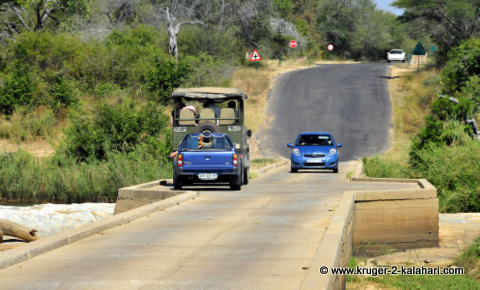
Game Sightings - Congestions
In the case where there is a sighting with many cars causing congestion, the lane opposite(furthest away) the side of the game or object/s being viewed, may not be blocked by stationary vehicles.
This lane must be kept open for those that wish to pass the sighting. Please do not park diagonally, especially in the driving lanes.
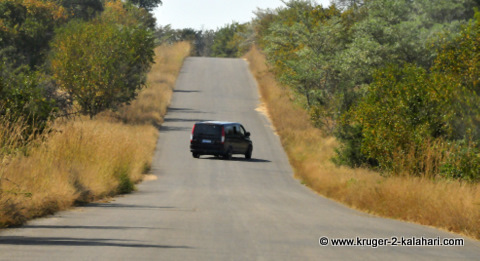
When some people see an animal they just stop right where they are - there is little or no thought for others who may be travelling along the road and do not want to also stop and watch the animal...
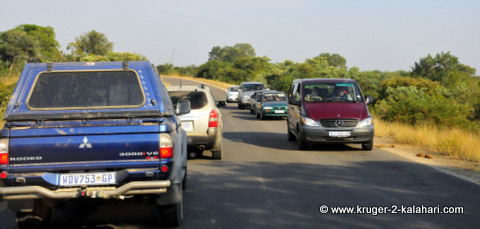
In the above photograph the animal is to our left so the two cars in front of us have done the right thing - it's the oncoming cars that are now blocking the road by stopping next to the vehicles instead of pulling up in front of them or parking closer to the two vehicles thereby leaving a gap for other cars to go past.
Understanding and obeying park rules is not rocket science!
Game Sightings - General
Be careful when passing animals or birds close to the road - they could be alarmed by your approach and run into the road.
For game viewing, please park on the side of the road that the game is located as this will prevent cars from passing between the viewing vehicle and the object you are watching.
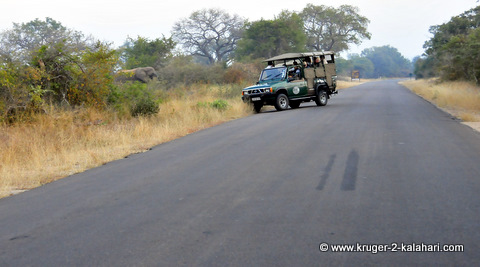
In the above photo the two game viewing vehicles have pulled over to the opposite side of the road to watch the elephant - if only more drivers would do this!
By parking closest to the side of the road that the animal is on also provides you, the photographer, with a better photo because you are then closer to your subject and other cars cannot drive or park in front of you!
I'm sure you will agree that the above park rules and park etiquette are most appropriate and are not onerous yet some people do plead ignorance of them or they blatantly ignore the rules - at their detriment.
There are traffic officials who patrol the park and issue fines but if you see someone violating one or more of the above park rules please take down their details, including the date, time, place, the vehicle's registration number and your contact details and send them to raymond@sanparks.org.
SANParks appreciates the help of its visitors in enforcing these park rules.
Return from Park Rules to Why African Safaris page
To make a safari rental booking in South Africa, Botswana or Namibia click here
"It's 764 pages of the most amazing information. It consists of, well, everything really. Photography info...area info...hidden roads..special places....what they have seen almost road by road. Where to stay just outside the Park...camp information. It takes quite a lot to impress me but I really feel that this book, which was 7 years in the making, is exceptional." - Janey Coetzee, South Africa
"Your time and money are valuable and the information in this Etosha eBook will help you save both."
-Don Stilton, Florida, USA
"As a photographer and someone who has visited and taken photographs in the Pilanesberg National Park, I can safely say that with the knowledge gained from this eBook, your experiences and photographs will be much more memorable."
-Alastair Stewart, BC, Canada
"This eBook will be extremely useful for a wide spectrum of photography enthusiasts, from beginners to even professional photographers."
- Tobie Oosthuizen, Pretoria, South Africa
Photo Safaris on a Private Vehicle - just You, the guide & the animals!
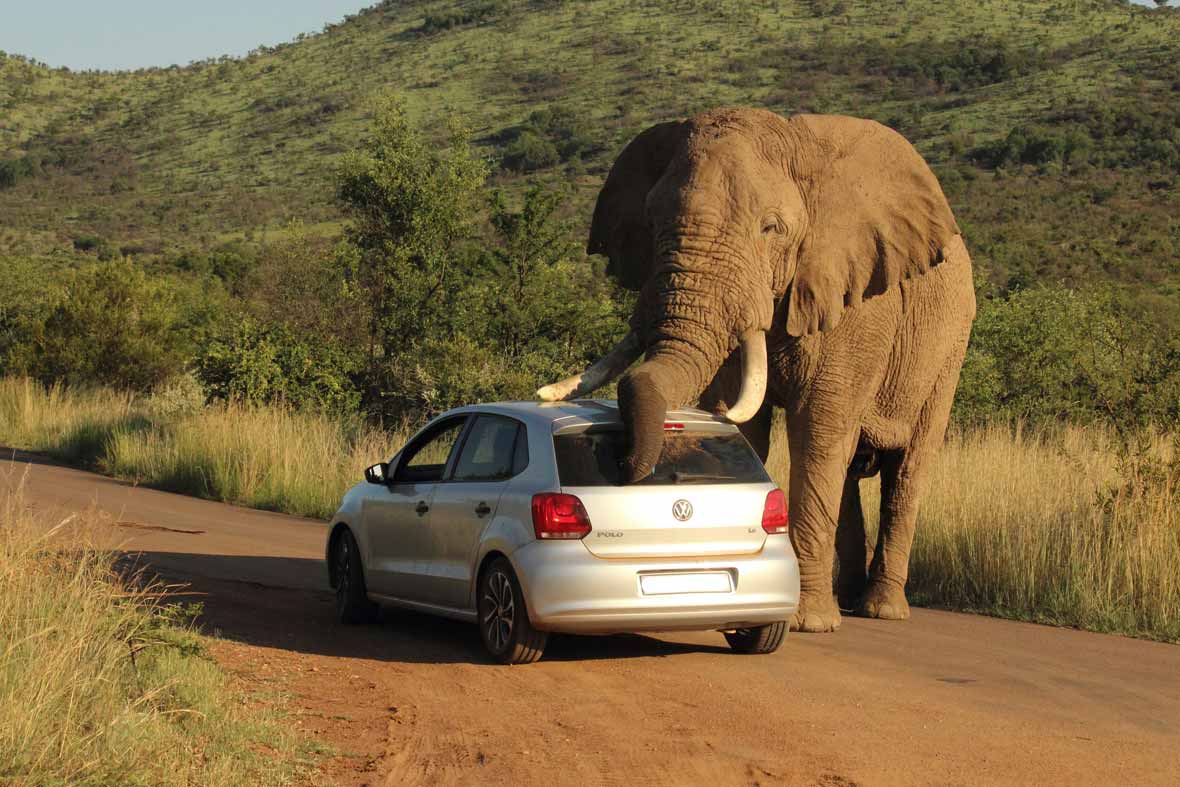
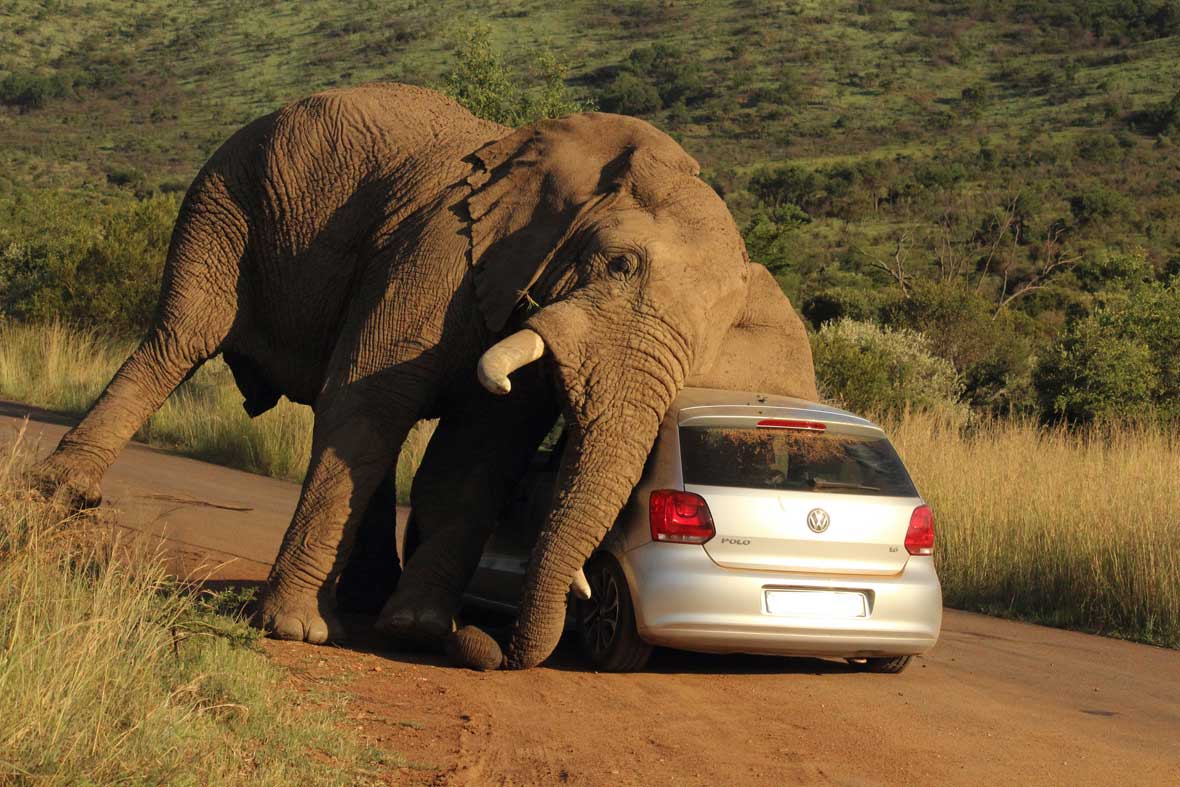







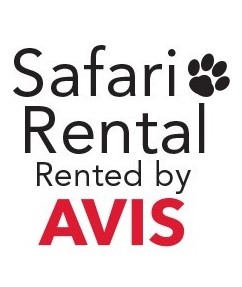
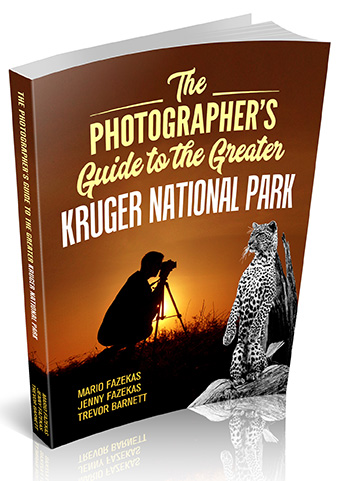
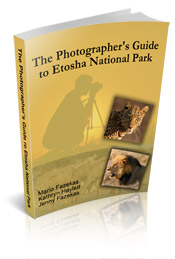
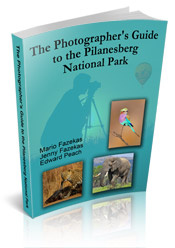
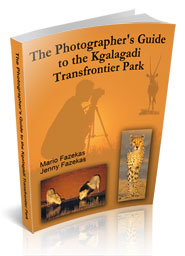
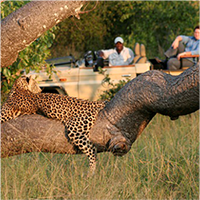
New! Comments
Have your say about what you just read! Please leave us a comment in the box below.